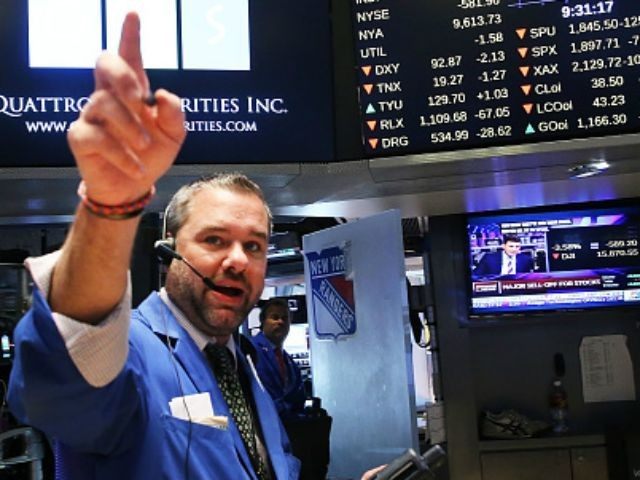The dramatic world-wide stock market sell-off, triggered at least in part by events in China, is a stark reminder that Presidential elections don’t occur in a vacuum. For the second time in a decade, the U.S. election next year will be largely driven by macro-events playing out across the globe.
In late September 2008, Republican Presidential candidate John McCain announced he was “suspending” his campaign due to the unfolding financial crisis. He also publicly asked that an upcoming debate with Democrat nominee Barack Obama be postponed.
The move by McCain was dramatic and, ultimately, anti-climatic. Within a few days, after shuffling between inconsequential meetings in Washington, McCain “resumed” his campaign and went forward with the debate.
Just weeks before, in the aftermath of the Republican convention and the selection of Alaska Gov. Sarah Palin as his running mate, McCain had been leading Obama in the polls. As he announced his campaign “suspension,” McCain and Obama were tied in the polls.
After McCain’s bizarre, and completely ineffectual response to the unfolding financial crisis, the Republican never again led Obama in the polls. Just days after resuming his campaign, McCain voted for the $800 billion Wall Street bailout, planting himself firmly in the middle of Washington’s establishment-led response to the crisis.
In the end, the Lehman bankruptcy, which ignited the looming crisis that September, also torpedoed the McCain campaign. Not the filing itself, mind you, but McCain’s nonsensical, neutered and unknowledgeable response to it. McCain’s suspension of his campaign might have been a turning point, but it turned out he had nothing meaningful to say about the crisis and shrunk back into the standard Washington reaction.
Dramatic change was necessary, McCain’s move signaled, but he wasn’t the one to deliver it. After that, the outcome of the election was academic.
Another financial crisis, or a series of crises, seems certain to dominate the next Presidential election. The slowing of growth in China, the devaluation of its currency and the exhaustion of Central Bank printing presses will wreck havoc on world markets and lead to multiple bankruptcies.
Actually, the word “another” inaccurately suggests that the looming crisis is something new. Rather, it is a continuation of the same credit bubble that led to the crisis in 2008. The Federal Reserve has expanded its balance sheet by almost $4 trillion since the first crisis. That means it printed money. The Federal government has borrowed an extra $8 trillion in the last eight years, pushing the national debt from $10 trillion to $18 trillion.
After accounting for this stimulus, there has been no economic growth in the last eight years. Effectively, there has been a world-wide contraction of economic output. Prices in world stock markets have been inflated by the fiscal and monetary stimulus, but economic output hasn’t caught up to sustain those levels. Even in economics, gravity wins in the end.
In addition to the economic uncertainty, there is at least a 50 percent chance that a foreign policy crisis will emerge as a result of the financial developments. The question for political prognosticators looking ahead to the 2016 election is how the candidates will respond to the coming crisis.
The 2016 election is very likely to be a crisis election, with voters looking for leadership in an anxious world. Establishment frontrunners Hillary Clinton and Jeb Bush may offer some voters a somber, steady hand in a crisis, but they are both inexorably linked to the previous crisis. They, like McCain in 2008, will likely offer a consensus political view that is out of step with voters’ reality.
Candidates like Bernie Sanders, Martin O’Malley, Marco Rubio, Rand Paul and a host of others will seem out-of-depth in handling the economic challenges likely to arise. These flights-of-fancy candidates indulge parts of our political emotions, but ring hallow when hard reality surrounds us.
It is at least a distinct possibility, if the crisis plays out now, that new candidates will announce campaigns for the Presidency. Crisis doesn’t respect the normal political calendar.
It is possible that the Federal Reserve, which had been expected to nudge interest rates higher next month, will reverse course and announce further “stimulus” to assuage the markets. This action may cool down the present crisis and allow the campaigns to revert to their current debates on pay equity, minimum wages, birthright citizenship and standards in public education.
That is likely only a temporary respite, though. An economic crisis will emerge before the next election. The entire political deck will be reshuffled, not simply by events, but by candidates’ reactions to the events.
The campaign preseason is over. World events will dictate the outcome more than the reams of campaign plans currently on the books.

COMMENTS
Please let us know if you're having issues with commenting.